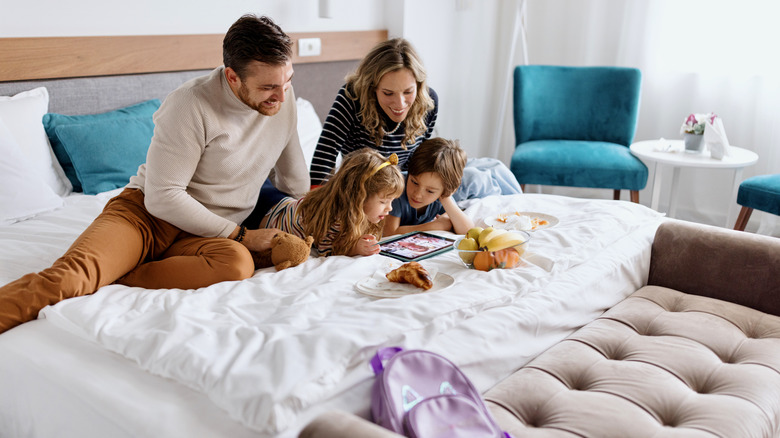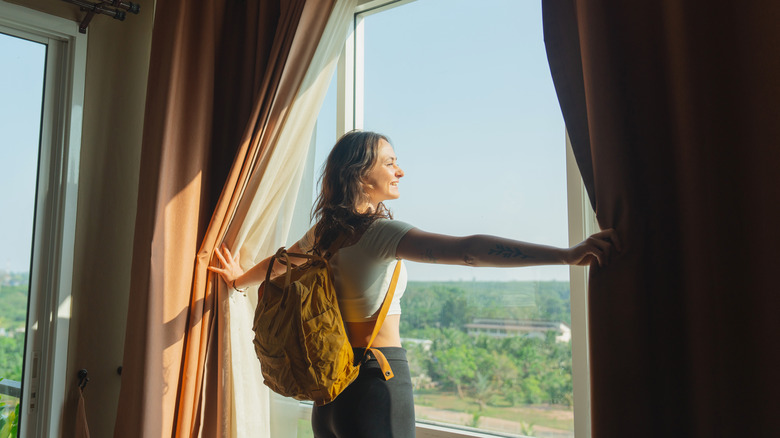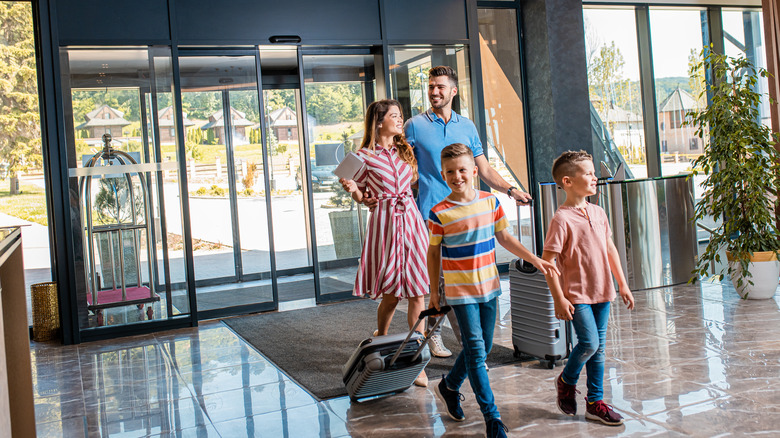Planning Hotels
Caitlyn Knuth
The hotel room you book while traveling can make a big impact on your overall experience. This makes it a very important part of the planning process. As a result, many travelers naturally end up looking for hotel rooms that are not only spacious, but come with great views, keep them close to places they’re excited to explore, and offer those fun luxurious extras too.
Whether you’re focused on finding a hotel room with a Jacuzzi tub, or one that showcases stunning design standards, it’s easy to get caught up in the creature comforts. What can unfortunately get overlooked are basic hotel room safety standards. Beyond the square footage a room offers or the type of mattress it hosts, it’s important to consider the details that make a difference in your personal well-being while traveling. One essential factor to consider from the start is the location of the room you select.
A luxurious room located by the entrance of the hotel might seem like a convenient option on paper after a day of sightseeing. In reality, this location typically isn’t as safe as a room situated on the side of the hotel farther from the entrance. When safety is an issue, requesting a room on the side of the hotel that keeps you far from the main door used by every other guest is the way to go. This choice minimizes access by others during your stay, enhancing the privacy and safety of your hotel room at the same time.
Pick a strategic floor and avoid balconies

Anchiy/Getty Images
A ground-floor hotel room can sound like a convenient option for those traveling with plenty of luggage to haul around. Unfortunately, choosing a room on ground level puts travelers at the most risk. Travelers United, a non-profit traveler’s advocacy group, advises against it for safety reasons.
Those who are aware of the safety risks of a ground-level reservation may instead set their sights on a hotel room on a high floor for some added peace of mind. While this is the right direction, you’ll still want to be careful about just how high you go. In the event of an emergency, standard fire ladders typically aren’t designed to be able to reach hotel windows above the fourth floor. When safety is a priority, requesting a room between the second and fourth floors is ideal.
Despite the promise of a stunning view and fresh air access, it’s also important to request a hotel room that doesn’t come with a balcony included. The World Health Organization estimates over 680,000 fatal falls each year globally while the National Library of Medicine reports most children falling from balconies are under the age of 5. With no way to truly confirm the safety standards of a hotel room balcony upon arrival, it’s a feature that’s generally best avoided.
Prioritize privacy and a room walkthrough

Oleh_slobodeniuk/Getty Images
Before you confirm your booking, you’ll want to make sure you’ve chosen a hotel room that isn’t overlooked by other hotel rooms on-site. In a world filled with smartphones and cameras, this is an important request to make. It’s also a simple way to advocate for your privacy and personal safety.
Once you’ve arrived at your hotel, enhancing your safety standards also means asking to see your room before you accept it. This is a great way to make sure the room you requested is equipped with a door that locks securely and has a peephole in place. It’s also an opportunity to make sure the room has a posted emergency exit plan, a working phone, is free of broken windows, and has curtains that fully close. If any of these important details aren’t in place, you have every right to request a room that does.
Yes, it’s fun to consider the added comforts of a hotel stay, but safety should always be the top priority when booking. Once you have those essentials covered to know you’re well-protected, you’re free to indulge in the extras. The combination of safety and fun is sure to make your getaway unforgettable.

